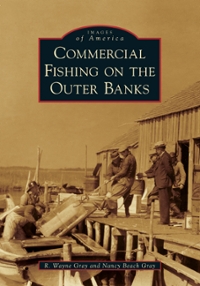Question
Ch. 8: Problems 1, 2, & 5 1.) The market for pizza is characterized by a downward-sloping demand curve and an upward-sloping supply curve. A.
- Ch. 8: Problems 1, 2, & 5
1.) The market for pizza is characterized by a downward-sloping demand curve and an upward-sloping supply curve.
A. Draw the competitive market equilibrium. Label the price, quantity, consumer surplus, and producer surplus. Is there any deadweight loss? Explain.
B. Suppose that the government forces each pizzeria to pay a $1 tax on each pizza sold. Illustrate the effect of this tax on the pizza market, being sure to label the consumer surplus, producer surplus, government revenue, and deadweight loss. How does each area compare to the pre-tax case?
C. If the tax were removed, pizza eaters and sellers would be better off, but the government would lose tax revenue. Suppose that consumers and producers voluntarily transferred some of their gains to the government. Could all parties (including the government) be better off than they were with a tax? Explain using the labeled areas in your graph.
2.) Evaluate the following two statements. Do you agree? Why or why not?
A. "A tax that has no deadweight loss cannot raise any revenue for the government."
B. "A tax that raises no revenue for the government cannot have any deadweight loss."
5.) After economics class one day, your friend suggests that taxing food would be a good way to raise revenue because the demand for food is quite inelastic. In what sense is taxing food a "good" way to raise revenue? In what sense is it not a "good" way to raise revenue?
- Ch. 11: Problems 1-5, Questions for Review 2 & 3
1.) Think about the goods and services provided by your local government.
Using the categories in Figure 1, classify each of the following goods, explaining your choice:
police protection
snow plowing
education
rural roads
city streets
Why do you think the government provides items that are not public goods?
2.)Both public goods and common resources involve externalities.
A. Both public goods and common resources involve externalities.
Are the externalities associated with public goods generally positive or negative? Is the free-market quantity of public goods generally greater or less than the socially efficient quantity? Cite examples in your answer.
B.) Are the externalities associated with common resources generally positive or negative? Is the free-market use of common resources generally greater or less than the socially efficient use? Cite examples in your answer.
3.) Fredo loves watching Downton Abbey on his local public TV station, but he never sends any money to support the station during its fund-raising drives.
A.) What name do economists have for people like Fredo?
B.) How can the government solve the problem caused by people like Fredo?
C.) Can you think of ways the private market can solve this problem? How does the option of cable TV alter the situation?
4.) Wireless, high-speed Internet is provided for free in the airport of the city of Communityville.
A.) At first, only a few people use the service. What type of a good is this and why?
B.)Eventually, as more people find out about the service and start using it, the speed of the connection begins to fall. Now what type of a good is the wireless Internet service?
C.)What problem might result and why? What is one possible way to correct this problem?
- Ch. 18: Problems 1-4
1.) Suppose that the president proposes a new law aimed at reducing healthcare costs: All Americans are required to eat one apple daily.
A.) How would this apple-a-day law affect the demand and equilibrium price of apples?
B.) How would the law affect the marginal product and the value of the marginal product of apple pickers?
C.) How would the law affect the demand and equilibrium wage for apple pickers?
2.) Show the effect of each of the following events on the market for labor in the computer manufacturing industry.
A.) Congress buys personal computers for all U.S. college students.
B.) More college students major in engineering and computer science.
C.)Computer firms build new manufacturing plants.
3.) Suppose that labor is the only input used by a perfectly competitive firm. The firm's production function is as follows:
Days of Labor Units of Output 0 days 0 units 1 7 2 13 3 19 4 25 5 28 6 29 7 29
A.) Calculate the marginal product of each additional worker.
B.) Each unit of output sells for $10. Calculate the value of the marginal product of each worker.
C.) Compute the demand schedule showing the number of workers hired for all wages from zero to $100 a day.
D.) Graph the firm's labor-demand curve.
E.) What happens to this demand curve if the price of output rises from $10 to $12 per unit?
4.) Smiling Cow Dairy can sell all the milk it wants for $4 a gallon, and it can rent all the robots it wants to milk the cows at a capital rental price of $100 a day. It faces the following production schedule:
Number of Robots Total Product 0 0 gallons 1 50g 2 85g 3 115g 4 140g 5 150g 6 155g
A.) In what kind of market structure does the firm sell its output? How can you tell?
B.) In what kind of market structure does the firm rent robots? How can you tell?
C.) Calculate the marginal product and the value of the marginal product of each additional robot.
D.) How many robots should the firm rent? Explain.
Step by Step Solution
There are 3 Steps involved in it
Step: 1

Get Instant Access to Expert-Tailored Solutions
See step-by-step solutions with expert insights and AI powered tools for academic success
Step: 2

Step: 3

Ace Your Homework with AI
Get the answers you need in no time with our AI-driven, step-by-step assistance
Get Started


